The recommended daily dose contains:
- Grapes 220,000 mg
- Barley (green) 120,000 mg
- Vitamin C 80,000 mg
- Green tea (extract) 80,000 mg
- Vitamin E (D-alpha-tocopheryl acetate) 71,520 mg
- Garlic (with Quercetin Sulfide) 70,000 mg
- Zinc 69,700 mg
- Oregano 60,000 mg
- Grape seeds (extract) 50,000 mg
- Cistus incanus 50,000 mg
- Pomegranate (extract) 44,000 mg
- White tea 36,000 mg
- OPCs (oligomers of procyanidins) and PACs (proanthocyanidins) from grape seeds 30,000 mg
- Alpha-lipoic acid 15,000 mg
- Melon (extract) 4,000 mg
Grapes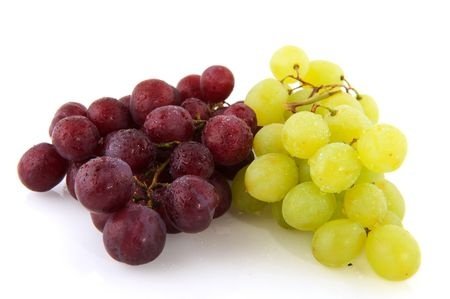
OPC is an abbreviation for a group of substances, oligomers of procyanidins, which are found mainly in grape seeds. These bitter polyphenols are tasted when grape seeds are chewed. OPC is known to protect our cells as a strong and long-term effective antioxidant. OPCs develop the main antioxidant effect by neutralizing the so-called free oxygen radicals. Free oxygen radicals are classified as harmful to our health in the long term because they attack and destroy cells or cell walls, enzymes, our DNA, cell organelles and more. This can lead to serious health problems. Free radicals are constantly in our body, but the body maintains a balance. Radicals appear mostly from toxins in the environment, tobacco smoke, stress and physical exertion, but also with chronic diseases or taking medications, obesity, etc., more radicals can appear, leading to an imbalance, so that the amount of free radicals in the body can increase. Free radicals are neutralized by antioxidants, which, however, are used up in the process, so they must be constantly supplied with food or with appropriate nutritional supplements. Grape seed powder contains OPCs, polyphenols, anthocyanins and catechins, which are also powerful natural antioxidants.
|
Barley (green)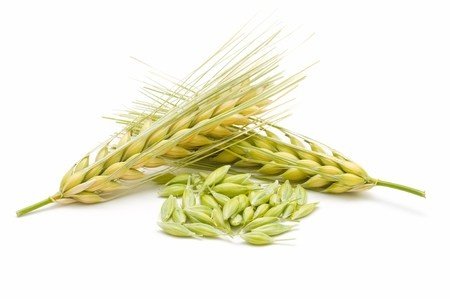
Barley stalks are a source of the main antioxidant enzyme superoxide dismutase (SOD) as well as antioxidant vitamins , minerals and carotenoids. Barley does not contain cholesterol and gluten. It is suitable for healthy detoxification, good digestion, pH balance and strengthening of the immune system.
The high fiber content in young barley helps regulate bowel function. It contains a rich cocktail of minerals - potassium, calcium, magnesium, iron, sodium, copper, phosphorus, zinc and manganese.
Studies show that the longer this antioxidant is taken, the stronger its effect.
|
Vitamin C
When it comes to colds, vitamin C is on everyone's lips - literally, because it provides valuable support for the immune system. Equally important is its effect as an antioxidant: vitamin C, just like vitamins A and E, neutralizes free radicals that can damage cells in our body. Vitamin C is involved in the production of endogenous collagen and controls the production of L-carnitine. It also plays an important role in the development of teeth, gums, muscles and bones, as well as in burning fat. Since vitamin C helps the absorption of iron, it has a beneficial effect on the oxygen content of the blood. Vitamin C deficiency can be manifested by frequent and prolonged infections and colds. Its absence affects our general well-being and our ability to work. Because of its central role in the formation of connective tissue, the lack of vitamin C also has a negative effect on the structure and health of the skin. Fresh fruits and vegetables with universal vitamin C should be present in our menu every day. The most famous suppliers of vitamin C are of course citrus fruits. Vitamin C, which is also known as ascorbic acid, greatly contributes to their fresh taste. The unsung heroes when it comes to vitamin C, however, are potatoes, which are also high in ascorbic acid. Both broccoli and peppers have more vitamin C than the classic orange. But a person cannot always carefully compose his daily menu. In addition, many people have an increased need for vitamin C, such as smokers or athletes, as well as people who are under daily stress. Dietary supplements can provide in these cases an adequate supply of vitamin C. Vitamin C lowers the pH of the urine and thus helps to reduce the bacteria in the urinary tract that are not resistant to acid. Vitamin C is important for biosynthesis and supports detoxification processes in the body. It is also involved in iron metabolism. Vitamin C also stimulates the production of norepinephrine and supports the conversion of fat into energy. With this, vitamin C is an active dietary supplement for burning fat. Some nutritionists recommend up to 1 gram of vitamin C per day at the start of a weight loss diet.
|
Green tea (extract)
Unlike black tea, green tea does not undergo fermentation. Green tea leaves (Camellia Sinensis) contain caffeine and are rich in catechins including epicatechin, epicatechin gallate, epigallocatechin and epigallocatechin gallate (ECGC).
Catechins have an amazing health effect on cardiovascular diseases, as well as a preventive effect against cell degeneration. ECGC has many proven positive effects in classic social diseases such as obesity, diabetes, heart disease and Alzheimer's.
|
Vitamin E (D-alpha-tocopheryl acetate)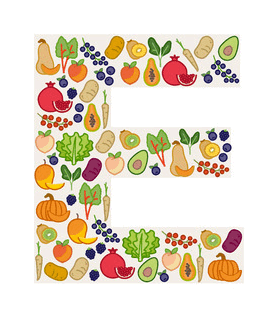
Vitamin E is best known as a fat-soluble "free radical scavenger." Just like vitamins A and C, it protects the body's cells against aggressive oxygen compounds and toxins in the environment. Vitamin E can thus delay premature aging and prevent cell damage leading to disease or even cell degeneration. Due to its protective effect, vitamin E, which in the language of chemistry is called D-alpha-tocopheryl acetate, is widely used in cosmetics. It also plays an important role in protein and fat metabolism. Vitamin E supports the functioning of the cardiovascular system in two ways. First, it helps reduce "bad" cholesterol, and thus has a positive effect on blood vessels. Second, it prevents red blood cells from sticking together and thus improves blood circulation. Since vitamin E also has an anti-inflammatory effect, it can help relieve rheumatic pain. Vitamin E is formed exclusively in plants and starts from there along the food chain. Signs of vitamin E deficiency are skin problems, muscle weakness, degeneration and a higher susceptibility to infections. Supplementing the daily diet with vitamin E can be conveniently and easily implemented through nutritional supplements.
|
Garlic (with Quercetin Sulfide)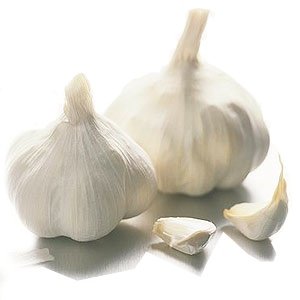
Garlic has an antibacterial and antifungal effect. The sulfur compounds in it protect the body from free radicals and turn it into a strong antioxidant. Quercetin is a strong antioxidant that strongly limits oxidative stress, thereby eliminating one of the main causes of toxin accumulation in the body. He is fighting many diseases. It is rich in potassium, which protects against cardiovascular diseases, provitamin A, proteins, essential oils. Protects brain cells from the harmful effects of free radicals.
|
Zinc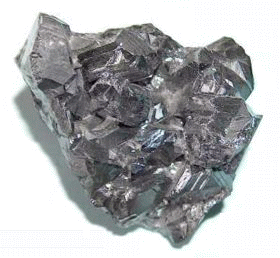
Zinc is involved in the metabolism of proteins, lipids and carbohydrates. It is very important for the production of collagen. It contributes to the formation of a network of fibers that capture red blood cells and thus accelerates the healing of wounds. Protects against premature aging. supports the immune system, the good condition of the skin and hair. It has a beneficial effect on the genitals. Zinc is also a powerful antioxidant. In combination with vitamin A, it supports vision.
|
Oregano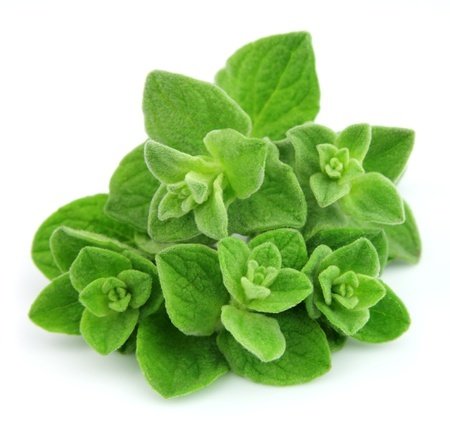
Oregano improves digestion, has an antispasmodic and nerve-calming effect. A rich source of iron, vitamin K, magnesium, vitamin A, vitamin C, calcium and omega 3 fatty acids, pygan is still used in traditional Chinese medicine. To this day, the pagan still recommends the traditional medicine for colds, flu and coughs. It has anti-bacterial properties and helps to treat infections, strengthens the immune system. It also relieves muscle spasms and joint pains.
|
Grape seeds (extract)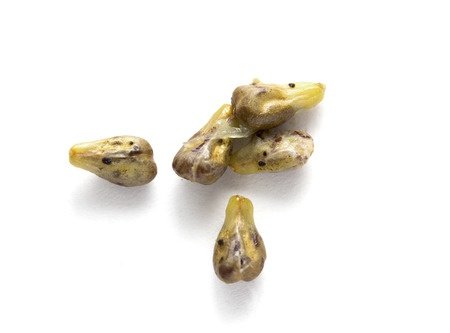
OPC or oligomer procyanidins are very powerful and are sometimes called natural super antioxidants. Their antioxidant action is determined by their extremely condensed aromatic rings, which are perfect stabilizers of free radicals. Polyphenols, anthocyanins and catechins enhance the OPC antioxidant effect and slow down aging processes. Even in the often bitter red grape seeds, high levels of OPCs, polyphenols and anthocyanidins have been found.
|
Cistus incanus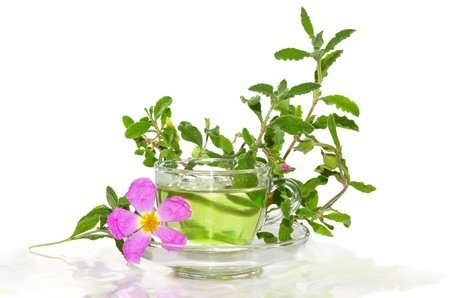
Cistus Incanus (cottonberry) is a free-growing shrub in the Mediterranean region. It contains a high content of polyphenols. The latter take care of the deactivation of the viruses by blocking the H and N antennas, with which the viruses attach to human cells. In this way, the reproduction of viruses is stopped and infections are extinguished more quickly. Cistus incanus has the ability to repel and neutralize free radicals, thereby preventing the oxidation processes that are harmful to cells, leading to aging, the appearance of cancer and other diseases.
|
Pomegranate (extract)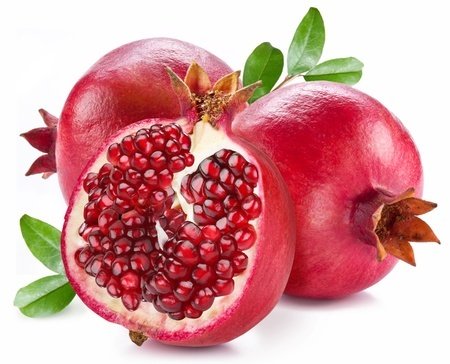
Pomegranate (Punica Granatum) has been known since ancient times as a remedy for many diseases. The pomegranate is full of very powerful and effective antioxidants - polyphenols and isoflavones, as well as ellagic acid, which, according to modern research, is the reason for the pomegranate's resistance against the development of cancer cells.
Results of various studies show that the daily consumption of pomegranate by patients with prostate diseases has an extremely positive effect on the condition of the disease. A cell culture study also shows that even in the late stages of prostate cancer, pomegranate can still have a positive effect on cell structure. Research from 2007 shows that pomegranate extract can inhibit the growth of cancer cells in the lungs, as well as reduce the risk of prostate cancer altogether.
|
White tea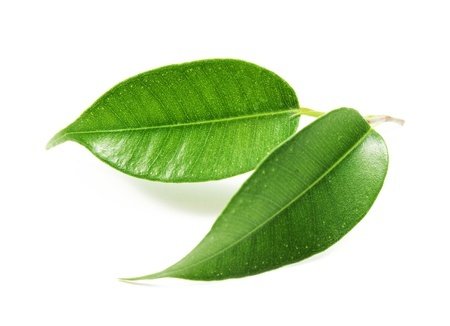
Studies have shown that young white tea leaves contain more antioxidants than green tea. A cup of white tea contains 12 times more antioxidants than a cup of freshly squeezed orange juice. White tea keeps us healthy and young, reduces the risk of cancer and arthritis, has high levels of antioxidants that can reduce the risk of cardiovascular disease. White tea is produced with an extremely short fermentation process of the tea leaves. White tea contains high levels of catechins such as EGCG (epigallocatechin gallate). EGCG contains polyphenols that have antioxidant, antibacterial and antiviral properties that promote health, help the body fight free radicals and prevent malignant changes in cells. Epigallocatechin gallate is also known to prevent the development of Alzheimer's and Parkinson's, normalize blood sugar levels and fight against cell aging. In addition, EGCG accelerates the metabolism by stimulating the production of norepinephrine.
|
OPCs (oligomers of procyanidins) and PACs (proanthocyanidins) from grape seeds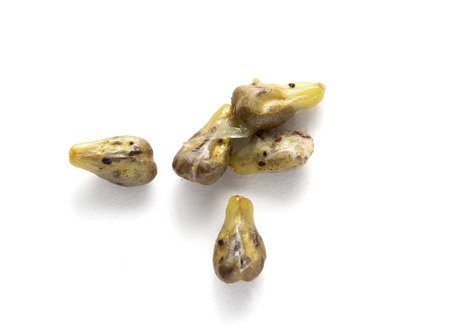
OPC is an abbreviation for a group of substances, oligomers of procyanidins, which are found mainly in grape seeds. These bitter polyphenols are tasted when grape seeds are chewed. OPC is known to protect our cells as a strong and long-term effective antioxidant and to have an extremely positive effect on all symptoms of metabolic syndrome. OPCs develop their main antioxidant effect by neutralizing so-called free oxygen radicals. Free oxygen radicals are classified as harmful to our health in the long term because they attack and destroy cells or cell walls, enzymes, our DNA and more. This can lead to serious health problems. Free radicals are constantly in our body, but the body maintains a balance. Radicals appear mostly from environmental toxins, tobacco smoke, stress and exercise, but with obesity, chronic diseases or medication etc., more radicals can appear, leading to an imbalance, so the amount of free radicals in the body can increase. Free radicals are neutralized by antioxidants, which, however, are used up in the process, so they must be constantly supplied with food or with appropriate nutritional supplements. Grape seeds contain OPCs, PACs (proanthocyanidins), polyphenols, anthocyanins and catechins, which are also powerful natural antioxidants.
The PACs in grape seeds, in addition to being equally powerful antioxidants, improve insulin sensitivity and have a rejuvenating effect on cells. In this way, they protect against cardiovascular diseases, obesity and oncological problems.
|
Alpha-lipoic acid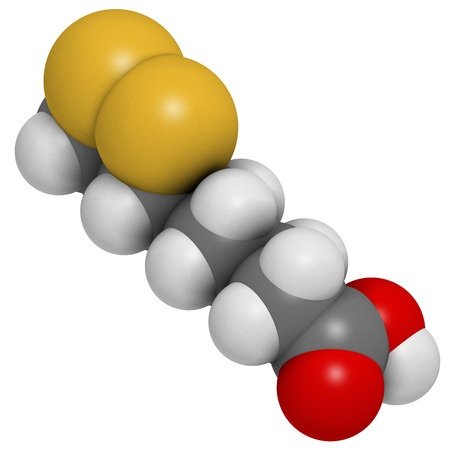
Alpha-lipoic acid is one of the few nutritional supplements that cross the blood-brain barrier, i.e. can enter the extracellular fluid of the brain in the central nervous system. And since it is also fat-soluble, it manages to reach the entire nervous system. Alpha-lipoic acid is a free radical scavenger and a universal antioxidant, which also has an extremely useful quality - it is able to regenerate worn-out antioxidants in the body, such as vitamin C, vitamin E, coenzyme Q10 or glutathione.
Alpha-lipoic acid acts in many enzymatic reactions, mainly in oxidative decarboxylation as a coenzyme. With its reduced form - dihydrolipoic acid - alpha-lipoic acid is a biochemical redox system.
|
Melon (extract)
Melon contains vitamin C, E, provitamin A, potassium, lycopene, etc. Reduces cholesterol deposits on the walls of blood vessels, expands coronary vessels. Lycopene, in turn, is necessary for the normal growth and development of cells, as well as for their specialization to perform various functions in the body. A number of studies prove that taking lycopene reduces the risk of tumors of the prostate, uterus, mammary gland, lung and digestive tract. Taking lycopene reduces the risk of heart disease and activates the immune system.
|


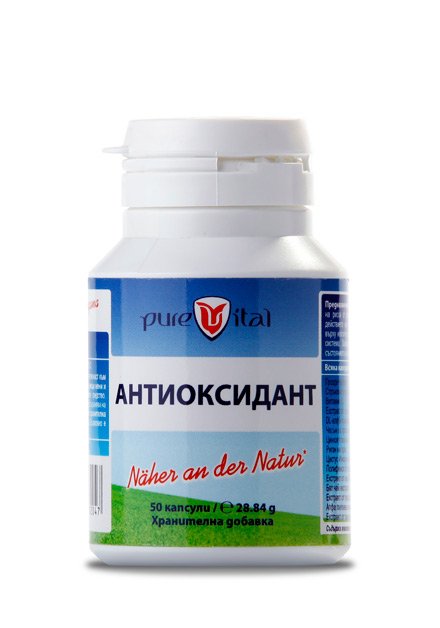

There are no reviews yet.